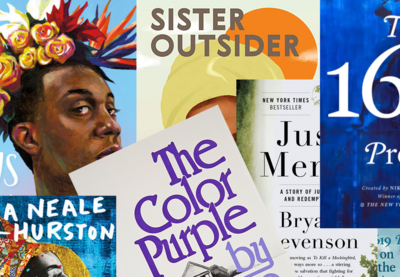Literature can be transformative in helping us learn about the world and see ourselves as part of the shared human experience. Through reading, reflecting and taking action in our daily lives to create more inclusive communities, we can resist hate and the efforts to limit our freedom to learn.
To build bridges of understanding and celebrate our diversity and shared humanity, let’s
[Page updated Sept. 2024]
Books for Teen and Young Adult Readers
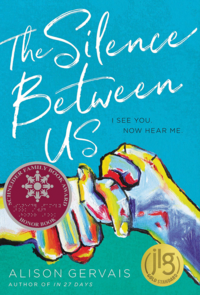
Fiction
The beautiful cover art by Deaf artist Nancy Roark is just one reason The Silence Between Us stands out. This lovely YA novel follows Maya, a Deaf protagonist, as she navigates her last year of high school, a romantic relationship and more. For the first time in her life, Maya is attending a school for hearing students, and she struggles with classmates and teachers who don’t understand or respect Deaf experience or culture. Written by Alison Gervais, who is Hard of Hearing, the dialogue mixes conversation, sign language and lip reading to tell Maya’s story. Introduces a story too often underrepresented in YA literature.
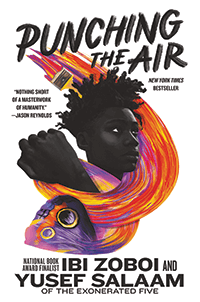
Punching the Air, by Ibi Zoboi and Yusef Salaam, is an intricately crafted novel in verse that paints a portrait of a young Black boy’s humanity. At 16, Amal Shahid fights to find hope, freedom and his truth through the arts in the most debilitating space—a juvenile detention center. Salaam, one of the Exonerated Five, writes with Zoboi to expose how systemic racism creates disdain for Blackness, repressing the genius and creativity of Black boys. This must-read, rhythmic masterpiece amplifies the often stifled gifts of Black boyhood while reminding us to extend grace and mercy to those who are failed by oppressive systems.

Crystal Maldonado weaves a wonderfully sweet, emotional and funny story about love, friendship and family in Fat Chance, Charlie Vega. Charlie is a Brown girl who loves her fat body even when things around her—including her own comparisons to her charismatic best friend—suggest her physical self needs transformation. Charlie is beautiful, charming and delightful with a measure of self-doubt, all attributes that inform her journey as she winds her way through the twists and turns of adolescence. Beautifully and authentically captures nuanced relationships and what it feels like to navigate self-acceptance.
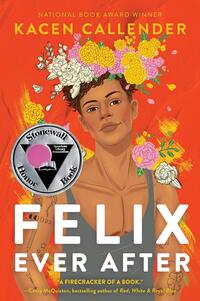
Felix Ever After is a captivating coming-of-age story from the perspective of Felix Love, a 17-year-old transgender boy who longs to fall in love. Through Kacen Callender’s richly crafted setting and dialogue, you can practically taste what it’s like to be 17 in New York City. In this triumph of a novel, the author offers a window into Felix’s many intersecting identities—Black, queer, poor and young—in a refreshingly unapologetic and deeply human way. Felix Ever After is raw, funny, heartbreaking and almost impossible to put down.
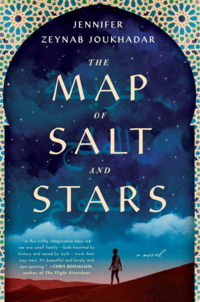
When war erupts in Homs, Syria, 12-year-old Nour and her family must traverse seven countries in the Arab world in search of safety. For solace on their harrowing journey, Nour recounts the ancient tale of Rawiya, a 12th-century girl who disguises herself as a boy to apprentice with a renowned mapmaker and adventurer. Eight hundred years apart, the two girls chart an identical course on their quests. Written by Syrian-American author Jennifer Zeynab Joukhadar, The Map of Salt and Stars infuses a history of violence and oppression with magic and hope.
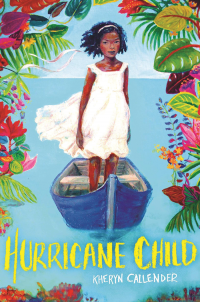
Twelve-year-old Caroline Murphy’s beloved mother left over a year ago and mysteriously never returned. While determined to find her somewhere on St. Thomas of the U.S. Virgin Islands, Caroline is beset by clinging spirits and relentless bullies, all the while trying to sort out her growing feelings for Kalinda, the new student from Barbados. Readers will find that Kacen Callender’s Hurricane Child is bookended by dangerous storms, but that Caroline’s greatest challenges and discoveries about her family and herself lie in between.
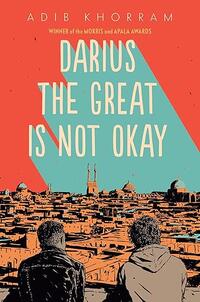
Darius the Great Is Not Okay, Adib Khorram’s beautiful coming-of-age novel, follows Darius Kellner, a second generation American and multiracial Persian boy whose life changes when he visits Iran for the first time. The story centers on family, friends and the rhythm of life for Darius in the U.S. and Iran. Along with excellent explorations of culture and place and new friendships, this book brings into focus mental health, in particular clinical depression. Darius’s story will resonate with anyone who has struggled to fit in. The sequel, Darius the Great Deserves Better, elaborates on Darius’ acceptance of his LGBTQ+ identity.
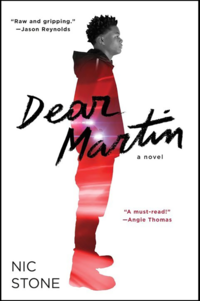
Nic Stone’s Dear Martin tells the story of Justyce McAllister and Emmanuel “Manny” Rivers, two teenage, African American prep school students who are best friends from two very different neighborhoods. Justyce lives in a community reeling with poverty while Manny comes from a wealthy environment. But when Justyce experiences racial profiling, police brutality and a range of injustices, he begins to struggle with how he fits into American society, especially as someone who envisions a bright future for himself but sees the systemic obstacles in his way.
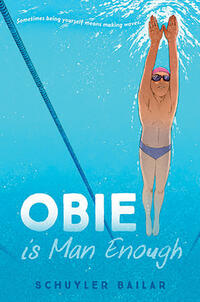
Obie Is Man Enough—a debut novel by acclaimed advocate Schuyler Bailar, the first trans man to compete on an NCAA Division I men’s team—follows Obie Chang as he navigates middle school, swimming competitions and relationships post-transition. This endearingly honest account of Obie’s life—and how his inherited cultures intertwine to inform his resilience—offers a timely own-voices text exploring what it means to be a trans athlete, to be a kid and to be a friend. A humanizing portrait that cuts through the callousness of national debates with a strong heart, like a swimmer through water.
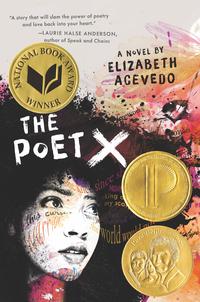
The Poet X tells the story of a young woman coming to terms with her identity and place in the world amid the backdrop of a vibrant Harlem neighborhood. X’s (short for Xiomara) journey of self-discovery and self-love leads her to discover her own personal liberation through the art of slam poetry. This National Book Award-winning debut novel from Elizabeth Acevedo is a unique and skillful blend of short poems and novel writing resembling Xiomara’s diary of poetry and inner reflections on the struggles she confronts daily. X comes to terms with homophobia, misogyny, street harassment, religion and abuse among other timely topics. Acevedo uses very accessible language that students use themselves and presents struggles they might face within their own personal journeys and school communities.
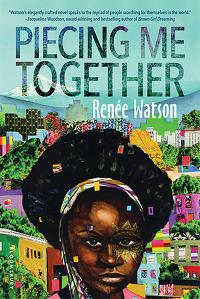
In Renée Watson’s Piecing Me Together, Jade would like people to see her as someone who doesn’t need “an opportunity,” but instead as someone who can give and doesn’t always need to receive. But it seems like so many adults in her life think otherwis
e. As Jade navigates the intricacies of living in a low-income household, being one of very few black kids at a private school, and becoming friends with Sam (a white student who doesn’t always understand her), she owns her voice as an artist and develops a fuller sense of herself.
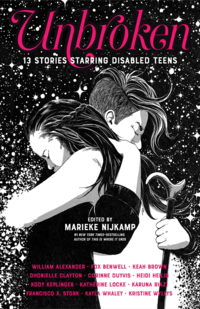
One story is the perfect fit for a romantic comedy. Another one will have you on the edge of your seat, wondering if the main character will escape the grip of a terrifying ghost. All of the stories in Unbroken: 13 Stories Starring Disabled Teens, edited by Marieke Nijkamp, feature teens with disabilities as authentic central characters. Fully embodying their disabilities and personhood, they are the heroes and love interests, and, like all teens, they're learning how to harness their power. Readers are long overdue for a text that moves disabled voices from the margins and into the center. Note: Strong language and content advisory.
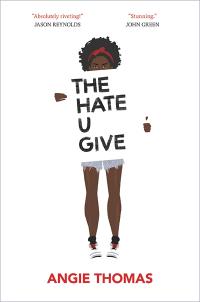
Angie Thomas writes The Hate U Give from the perspective of 16-year-old Starr Carter, the only witness to the fatal shooting of her friend Khalil by a police officer. Readers follow Starr’s path as she is asked to testify in front of a grand jury and speak out in support of her late friend. Repercussions within her predominantly black neighborhood and majority-white school make for compelling final decisions.
Nonfiction
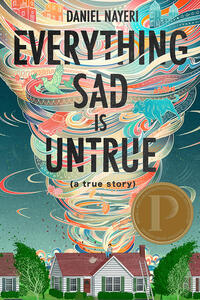
In Daniel Nayeri’s Everything Sad Is Untrue (A True Story), narrator Khosrou presents himself as a middle-school avatar of Scheherazade—a figure of Persian legend who told stories to spare her life. For Khosrou, a refugee born in Iran and now living in Oklahoma, sparing his life means holding onto his culture and memories. Khosrou interweaves legends, family histories and often painful, present realities. These stories poignantly illustrate the importance of reclaiming hidden histories and the hurt experienced by young people whose truth is discarded—or worse, erased. A gorgeously written book that prizes imagination, reclaims truth and rightly demands love for young people who feel far from home or forgotten.
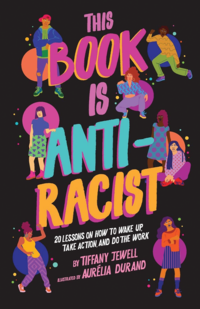
This Book Is Anti-Racist, by Tiffany Jewell and illustrated by Aurélia Durand, is a much-needed guide for young people to understand and challenge the oppressive systems and interpersonal behavior that underpin our society. Filled with personal anecdotes and invaluable wisdom, this book provides space for young people to question dominant narratives about identity, race and racism and reflect on the intersections of their own identities. Throughout, Jewell embraces complexities inherent in discussions about racism, and she gives readers the necessary tools to be part of the diverse coalitions that will dismantle it. An individual commitment to anti-racist work begins with a catalyst—this book is poised to be that for so many youth.
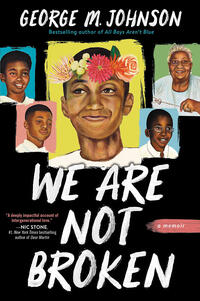
George M. Johnson, an award-winning Black nonbinary writer who identified as a boy in childhood, focuses on joy, adventure, misadventure, loyalty, betrayal, healing and love in their memoir, We Are Not Broken. A tribute to their beloved grandmother who creates an expansive space for her four young grandsons to be free, Johnson also offers possibilities that would enable Black boys—and the Black women who love and protect them—to live lives that are even more free. George M. Johnson superbly details their definition of Black Boy Joy. Note: This book contains the N-word, homophobic language and describes instances of sexual abuse.
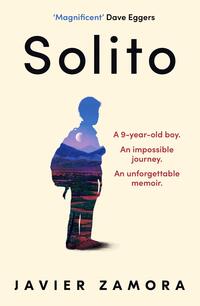
In Solito: A Memoir, Javier Zamora describes his journey as a 9-year-old from El Salvador to “La USA” to reunite with his parents. The coyote promises the trip will take two weeks, but it stretches into two terrifying months. To survive, Zamora leans on his new family, who encircle him with care and love. Zamora’s memoir humanizes the perspective of immigrants, particularly child migrants, who undertake dangerous treks into the U.S.
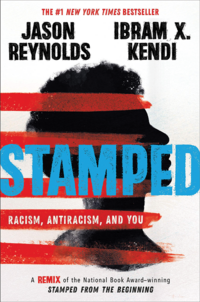
In Stamped: Racism, Antiracism, and You, Jason Reynolds reimagines Ibram X. Kendi’s 2016 National Book of the Year, Stamped From the Beginning, a work that explores the origins of racist ideas in America. Very much like its predecessor, Stamped explores the insidious ways racist ideas may take form in the lives and experiences of young people and examines how young people can make anti-racism a reality in their spaces. A timely and necessary work that shows young people they are not too young to think deeply about how racist ideas influence the world around them—and gives them valuable resources to challenge those ideas.
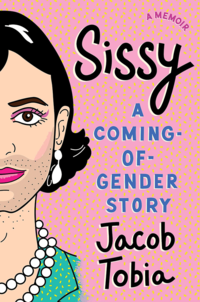
Jacob Tobia’s Sissy: A Coming-of-Gender Story follows the author throughout various stages in their education: elementary school, high school and college. Across the grade levels, Tobia illustrates the trauma caused by the strict enforcement of gender norms as well as the ways in which resistance and community take shape. Their memoir is an important read for providing genderqueer representation, which is still severely lacking in too many classroom and school libraries. A force of a book—equally educational as it is humorous, as personal as it is political.
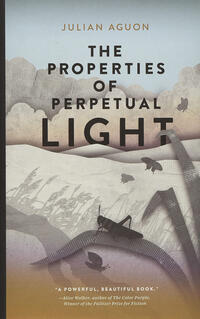
Julian Aguon, an Indigenous lawyer and writer from Guam, beautifully blends poetry and memoir in The Properties of Perpetual Light. Writing in part about issues that he and other Indigenous peoples face, Aguon incorporates conversations around colonialism, climate change and family trauma. He also peppers in nods to other writers he admires, like Arundhati Roy, Audre Lorde and Naomi Klein, offering readers more words to live by. Aguon’s words flow down the page with magic, beauty and power.

The (Other) F Word: A Celebration of the Fat and Fierce combines personal essays, prose, poetry, fashion tips and more into a visual celebration of fat bodies. Edited by Angie Manfredi, this groundbreaking collection of diverse voices combines the talents of renowned fat YA and middle-grade authors with those of fat influencers and creatives. It offers fat teen readers a guidebook to becoming their best, most confident selves while providing readers of all sizes a road map for reconceiving our notions of body and acceptance.
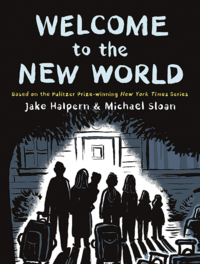
Based on the serialized, Pulitzer Prize-winning comic strip by the same name, Welcome to the New World tells the true story of two branches of the Syrian Aldabaan family, who arrived in the United States on Election Day 2016. What began as a reporting assignment for New York Times journalist Jake Halpern—and eventually illustrator Michael Sloan—turned into a three-year collaboration with the Aldabaans. The resulting graphic novel explores universal themes: desiring safety and belonging, having hopes and dreams, and wanting what’s best for one’s family. Particularly through the experiences of high schoolers Naji and Amal, we also see the assumptions, stereotypes and lack of compassion that result when we fail to see each other as fellow human beings.
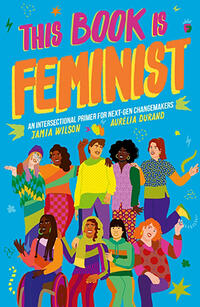
What is feminism, and why do we need it today? In This Book Is Feminist: An Intersectional Primer for Next-Gen Changemakers, Jamia Wilson navigates these questions from a perspective that is at once socially astute and deeply personal. With illustrations by Aurelia Durand, Wilson renders current intersectional feminist thought more approachable by grounding it in her own story and frequently prompting young people to reflect on how these topics come into play in their own lives.
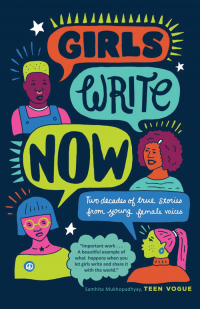
Each author featured in Girls Write Now: Two Decades of True Stories From Young Female Voices writes with astounding awareness of the people around her, but many are still beginning to understand themselves. The writers explore these dynamics through writing about their experiences with assimilation, feminism, bullying and more. Sprinkled throughout the book are quotes by authors like Chimamanda Ngozi Adichie and Roxane Gay, whose powerful impact on the young writers is evident in their stories.
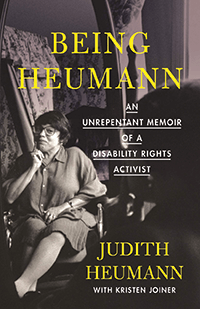
Judith Heumann’s memoir, Being Heumann, paints a detailed historical portrait of the birth of the 20th century disability rights movement. Writing with Kristen Joiner in witty and personal prose, Heumann describes how she and fellow disability activists established the groundbreaking Section 504 of the Rehabilitation Act of 1973, developed the Individuals with Disabilities Education Act and shifted the narrative of disability from a medical issue to a question of civil rights. If you’re searching for an excellent primer on the disability justice movement or a firsthand account of the power of the collective voice, you’ll want to pick up this book!
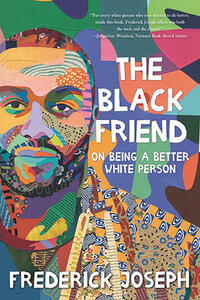
In The Black Friend: On Being a Better White Person, Frederick Joseph shares stories from his own life to help white readers understand how race-related issues have affected him and continue to affect him as a Black man—and what readers can learn from those moments. With his infectious sense of humor and guiding hand, and with help from interviews with several artists and activists, Joseph assembles a necessary toolkit to help readers become stronger accomplices in the fight for racial justice. Joseph allows a glimpse into his experiences and helps white people to do better as a result—we should all be so lucky to have a friend like that.
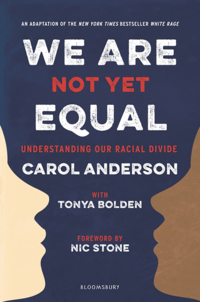
We Are Not Yet Equal: Understanding Our Racial Divide, a distillation of Carol Anderson’s earlier book White Rage, has been made more accessible for critical reading in the classroom with this YA adaptation co-authored with Tonya Bolden. In it, Anderson traces five events in our history—out of far too many available—that showcase the racist efforts made against black people in the United States whenever progress is achieved in the fight for true equal rights. This history of behavior is predictable and has been frustratingly effective, but it’s absolutely necessary that we understand it to be better able to rise against it.
